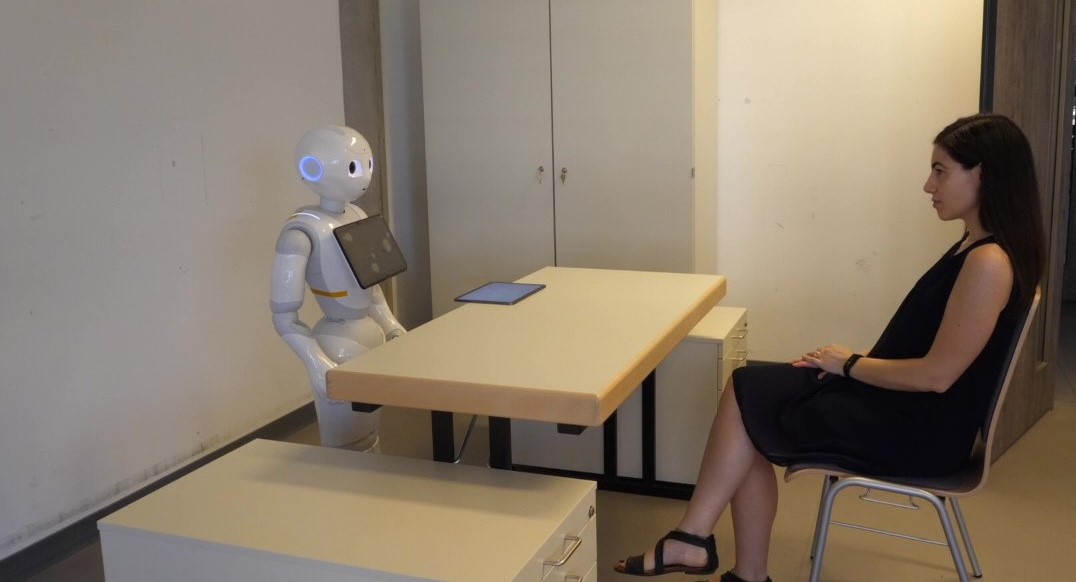How social skills of a humanoid robot affect human's perception of its social intelligence
Project Overview
Although advanced social robots are being increasingly used in everyday life, their behavior may still appear artificial.
What makes people perceive robots as intelligent and human-like? This research project was conducted by Charité – Universitätsmedizin Berlin, Bernstein Center for Computational Neuroscience as part of X-Student Research Group Projects. It explores the affect that different features of the robot‘s behavior
and its social skills have on human's attribution of social intelligence to robots.
Experiments were conducted where the robot’s skills (e.g., its ability to take the other’s perspective or use of gestures) were manipulated to assess how this effects people’s judgment of the robot’s social intelligence.
My contributions
As this was a research project of the Berlin University Alliance, we had a very dynamic group of people with different backgrounds. Most people had a social sciences background and were experienced with designing similar research experiements. We were all responsible for designing the experiment scenarios, I also took over the data analysis.
Other team members: Lea Krätzig (FU Berlin, Psychologie), Anne Jellinghaus (TU Berlin, Human Factors), Helena Winiger (FU Berlin, Philosophie)
Below you can find an example of the 4 scenarios that were used in the experiements.

Literature Research
- Perspective Taking: the ability to understand the oponnent's point of view
- Non-verbal Cues : use of gestures

Experiment Design
- does/does not observe that his/her friend is far away from the board game and is going to have a hard time playing the game.
- does/does not use hand gestures to show where the pencils are.


Data Collection and Analysis
Pervieved Social Intelligence (PSI) scale consisting of 20 elements, such as "notices human presence", "recognizes human emotions", "is trustworthy" etc.,
was used to calculate to confirm our hypothesis. Perspective taking and the use of gestures seemed to have postive correlation to
the robot's percieved social intelligence.
Model:
Rating ~ Gesture + Perspective Taking + Gesture:Perspective Taking + ( 1 | Subject) + (1 | Item)
Outlook
The Turing test, also known as the "imitation game", is a three-person game in which a computer uses written communication to try to fool a human interrogator
into thinking that it's another human. If a computer can pass the Turing test, it is said to be as socially intelligent as us Homo sapiens.
The fear that "computers will take over the world once they get so intelligent" is as old as the invention of computers. Today, computational resources have globally changed the society to its core and the question of
"how to make the technologic inventions responsible and sustainable" remains in trend.
